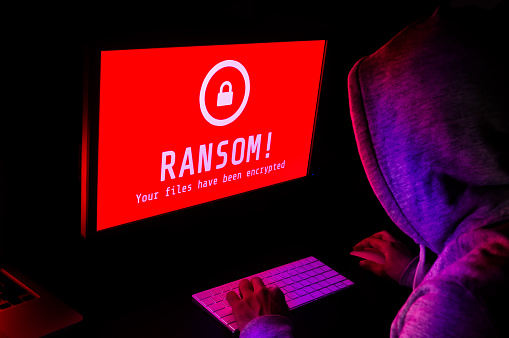Once again a hospital has been hit with ransomware, causing staff to rely on pens and paper to keep records and maintain patient care.

On January 11th, Indiana’s Hancock Regional Hospital was infected with ransomware by an “unknown party” that has requested an unspecified monetary amount in bitcoins in exchange for the key to unlocking the systems. The ransomware has compromised the hospital’s email system, electronic health records, and more.
So far, hospital staff maintains that no patient records were stolen and that quality of patient care has not been affected by the attack. Once they had realized what was going on, they shut down their systems to prevent the ransomware from spreading, then informed the FBI and contacted their IT support provider. According to Hancock Health Hospital CEO Steve Long, the financial demand has not yet been met.
“We, like other hospitals, do disaster drills all the time, so this aligns perfectly well with drills that we’ve had throughout the years on how to continue to deliver world-class care when you have system failures or system breaches,” said hospital strategy officer Rob Matt to The Indianapolis Star.
It’s been a little more than eight months since the WannaCry ransomware strain struck on the evening of May 11th, encrypting the data of thousands of businesses in the UK (including the entirety of the National Health Service) and holding them to ransom. By the end of the weekend, WannaCry had infected thousands of networks in over 150 countries around the world.
Despite the extent of that attack, the world still doesn’t seem prepared to defend itself against ransomware – so what can you do about it?
Be sure to follow these tips to keep dangerous ransomware out of your systems:
Ensure that you have a good backup, a respected antivirus, and up to date security patches in place.
These are the fundamentals of a strong cybersecurity defense. Without them, your IT will be vulnerable to a range of threats – it’ll only be a matter of time before you’re hit by ransomware or worse.
Both industry leaders and cybercrime law enforcement members agree that the best defense against ransomware, other types of malware and similar cybersecurity threats is a robust data backup contingency. Have you invested in one for your firm?
When developing your ransomware defense, keep these recommendations in mind:
- Make a considerable investment in a comprehensive backup data recovery solution so that you can restore your data at a moment’s notice when necessary.
- Test your backup and cybersecurity measures thoroughly and regularly; create dummy files and then delete them to see how fast they can be restored, or schedule a day to literally unplug your critical systems to find out how long it takes to get online again.
- Be sure to make the most of the available resources (both provided online and through expert IT consultants) to ensure that you’re not overlooking vulnerabilities in your IT security methodology.
Understand How Ransomware Works
Beyond simple security updates, it’s worth noting that ransomware often penetrates many systems through conventional phishing schemes, in which a fraudulent email requests that the recipient downloads an attachment, or clicks a link.
Ensure Your Staff Is Aware
Send out a company-wide memo. Make sure it comes from someone who won’t/can’t be ignored. It should say something like…
Attention All:
This ransomware is dangerous to your job and our company… (talk about ransomware’s impact).
It is imperative that you follow these guidelines on ALL work computers and ANY personal devices used for work.
- If you get emails with suspicious attachments; even if it is from people you know do not click on the attachment.
- No harm in opening the email for reading. Forward any suspicious emails to IT department.
- Be very cautious of what you click on while browsing. Do not click on random pop-ups!
- If you accidentally click on a suspicious email or web link, immediately unplug the computer from the network and turn off the WIFI – even before calling IT support.
Work With A Cybersecurity Expert
If you’re not sure how to ensure your protection against ransomware and other cybercrime threats, don’t try to “fake it ’till you make it”. Be sure to consult an expert if you’re unsure as to the state of your business’ cybersecurity defenses.
After all, isn’t this a lot to consider? Yes. Do you have to handle it all on your own? No! If you have any concerns about your cybersecurity whatsoever, be sure to get in touch with an expert support provider like eSOZO Computer and Network Services right away. Always be careful, and ensure your systems are up to date.
For more information about protecting your business from ransomware like the type that hit Hancock Regional Hospital, get in touch with eSOZO Computer and Network Services at (888) 376-9648 or info@esozo.com right away.




Follow eSOZO on Social Media